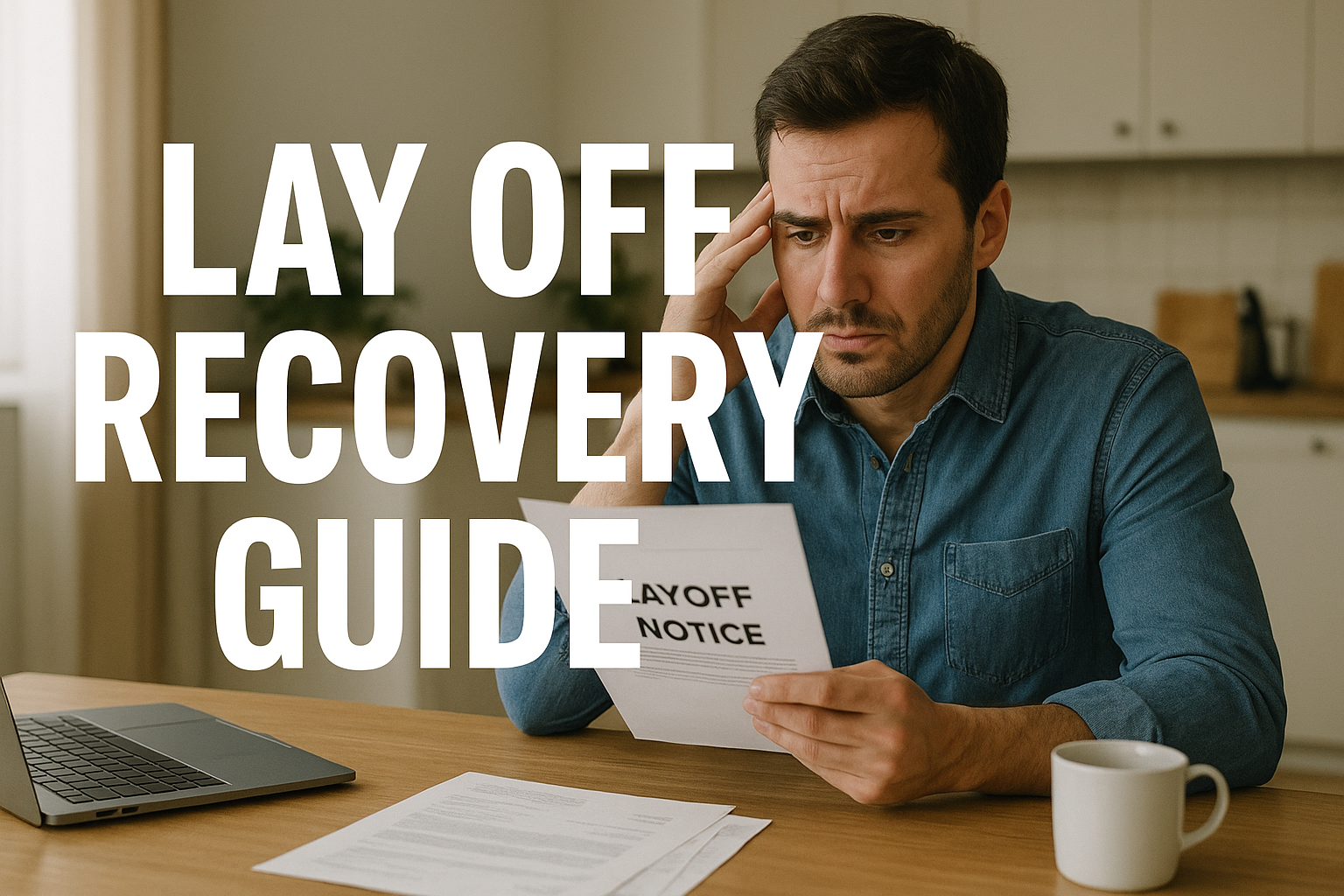If you’ve recently been laid off, you’re certainly not alone. With widespread job cuts across industries, many professionals are finding themselves suddenly without a paycheck. While the emotional and financial blow can be severe, a layoff doesn’t mean the end of your career—it can be the beginning of a rebound. This article gives you a structured, realistic roadmap: what to do now, how to regain your footing, and how to move into your next opportunity with strength and clarity.
Take a moment — and then act
When you first receive layoff news, it’s entirely natural to feel shock, anger, confusion, or fear. Experts say it’s important to pause briefly to acknowledge your emotional response before diving into job-search mode.
At the same time, the clock is ticking: bills still need to be paid, benefits may change, and your next move matters. So, after a short pause, shift into action.
Key actions right away:
- Ask your employer about your final paycheck, unused PTO, severance (if any), and how benefits will transition (health insurance, retirement, etc.).
- Register for unemployment benefits in your state as soon as you’re eligible (don’t delay).
- Review your budget: know how many months you can live on your savings + severance + unemployment.
Secure finances and benefits
One of the most practical steps after a layoff is to lock down your financial position and benefits so you don’t face surprises.
What to do:
- Clarify health insurance coverage: when does it end? Can you continue via COBRA or a marketplace plan?
- Review any severance offer: understand how much, how many weeks or months, what conditions (e.g., non-disclosure, non-compete) apply.
- Review retirement/stock options: ask when you must exercise any stock options or what happens to your 401(k) contributions.
- Update your budget: identify nonessential expenses you can pause or cut. This is especially important when income becomes uncertain.
- Resist panic moves with long-term investments: Financial advisors warn against selling retirement or long-term assets hastily after a layoff.
Take a professional inventory
Once the emergency steps are underway, it’s time to reflect and realign your career. A layoff can provide you with a moment to ask: What do I really want to do next? Do I want a similar role or a shift?
Consider these tasks:
- List your skills, accomplishments, and how you contributed in your past role. This builds confidence and helps articulate your value.
- Polish your resume, LinkedIn profile, and other professional materials. Tailor them not just to your past but to what you want next.
- Clarify your job search direction: Same industry? Different role? Freelancing/contracting? This helps focus applications instead of applying broadly.
Launch your job search, strategically
Now the real work begins: connecting, applying, interviewing. But doing so strategically increases your chances of a quicker, better outcome.
Tips for this phase:
- Activate your network: Reach out to former colleagues, mentors, industry contacts. Informational interviews can lead to unexpected opportunities.
- Tailor each application: Use keywords in job descriptions and reflect those experiences in your resume. Many employers use applicant-tracking systems.
- Prepare how you’ll talk about the layoff: Use a brief positive explanation like “company-wide downsizing eliminated my role” rather than dwelling on negatives.
- Consider alternative options: If full-time roles are scarce, contract work, temp jobs, or freelance gigs can bridge the gap. Use that time to upskill if needed.
Look after your well-being
Losing a job is more than a financial blow—it’s a personal and emotional challenge. Your mental health matters, and how you handle this time sets the tone for your next chapter.
Well-being actions:
- Maintain a daily routine: Set alarm, schedule job-search blocks, take breaks, exercise, eat well. This preserves structure and energy.
- Seek support: Talk to friends, family, or join support groups (online or offline) with others who’ve experienced layoffs. Sharing helps.
- Re-affirm your self-worth: Remind yourself that a layoff is not a reflection of your value or performance. Many layoffs happen due to business reasons, not individual failings.
Getting laid off is a setback—but it doesn’t have to derail your career. With clear, actionable steps, you can manage the immediate impact, preserve your finances, rebuild your professional identity, and move into your next opportunity even stronger than before.
Takeaways:
- Immediately address your finances and benefits.
- Inventory your achievements and refresh your professional profile.
- Activate your network and launch a focused job search.
- Take care of your emotional and physical well-being.
- Remember: Your layoff is not your identity. It’s a chapter—with a next chapter ahead.
FAQ
Q: Should I apply for unemployment benefits even if I have severance?
A: Yes. In most states you should apply as soon as you’re eligible—waiting can delay payments. Even with severance, you may be eligible.
Q: How soon should I start my job search after a layoff?
A: Very soon. While you may take a short break to reflect, industry experts recommend starting your search promptly to maintain momentum.
Q: How do I explain being laid off in interviews?
A: Use a concise, positive explanation: e.g., “My role was eliminated during a company-wide restructuring. I’m now excited to move into a role where I can [your value proposition].” Avoid negativity about your former employer.
Q: Should I consider a career change after a layoff?
A: Yes—this might be a good time. Reflect on what you like/don’t like about your previous work, evaluate your skills, and explore whether you might want a different path or industry.

